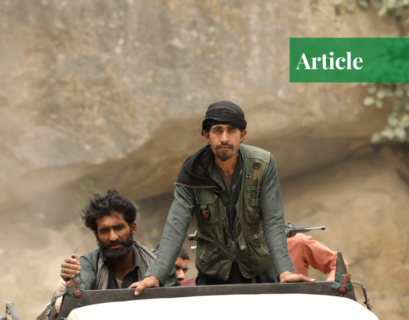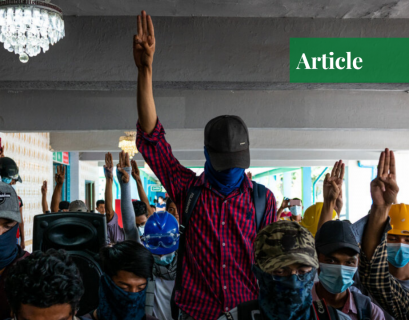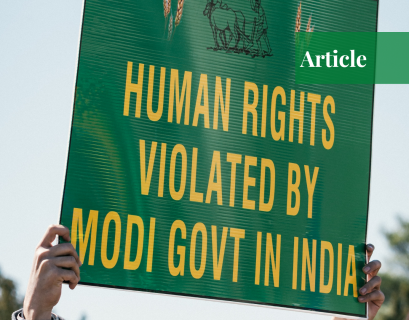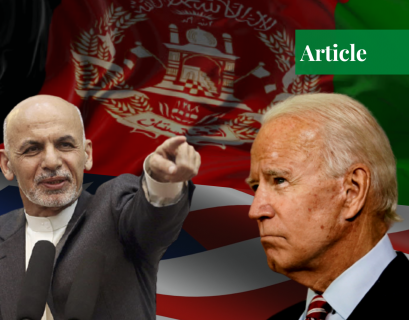India’s Experiment with Military Indigenization
Since the 1990s, India has made continuous efforts to expand its economy beyond traditional benchmarks of success.
India has reached the stage where it’s even taken on the indigenization of its defence sector, particularly the Tejas Mk-1 and Mk-2, in hopes of becoming a production house and supplier of military technology.
How the Taliban Came to Power: Tribal Islam vs. Settled Islam
On 15th August, 2021, the Taliban claimed victory over the US, the Afghan government, and the country’s national forces. The author explains the reasons behind this victory by drawing a parallel between the main actors and the concepts of Tribal Islam and Settled Islam.
The Taliban, according to the author, follow Tribal Islam, one that was initially practiced by the tribal peoples of North Africa. The Afghan government represents Settled Islam, which was established by the runaway caliph Abd-ur-Rehman in Andalusia (present-day Spain).
Those following Settled Islam lack ‘Asabiyyah’ – solidarity, responsibility, and social cohesion – which is a sustained feature in Tribal Islam.
The Impact of Climate Change Globally: Flooding, Heat Waves & Wildfires in 2021
With massive flooding and implacable wildfires enveloping planet earth, one fact that has been constantly overlooked for centuries has now come to the fore – the impact of climate change is real and merciless.
Turkey, Japan, Canada, and Northern Ireland have recorded their highest temperatures. Asian countries, particularly China, face flash floods and drowning cities.
The author stresses citizens and governments to inculcate sustainable and environmental-friendly practices so that the fierce forces of climate change can be mitigated.
Broadcasting Rights: The Issue of Live Cricket Matches
Pakistanis, the author notes, have a special relationship with cricket. There have been, however, developments that could deprive the Pakistan audience of watching cricket. Pakistan relies on Indian broadcasters to telecast the shows on cable networks – and the relationship between the two countries is precarious at best. Mr. Uzair Bin Farid sees this moment as an opportunity for the country to invest in science and technology, and ultimately be liberated from dependence on other countries.
The Need for Strategic Autonomy in Pakistan’s Foreign Policy
Pakistan’s foreign policy choices have been consistently subservient to exogenous factors and demands.
This paper aims to build a case for the introduction of strategic autonomy in Pakistan’s foreign policy and in the pursuit of security.
The palpable shift in global powerhouses has brought a rare moment for Pakistan to reset its security policy and move towards a more autonomous course of foreign policy.
Failure of Democracy in Myanmar: What Went Wrong?
The author seeks to explain the democratic insufficiencies and the violation of civil and political rights in Myanmar against a backdrop of Martin Luther King Jr.’s words. The violence against the minorities – particularly the Rohingya Muslims – has unveiled cracks that lay just beneath the surface of Myanmar’s so-called ‘democracy’.
Farmers’ Protests in India: Modi’s Predicament
The introduction of three farm laws, and the revocation of Article 370 by the Indian government has left India with quite a few challenges. While gathering allies abroad, the Modi regime has neglected the state’s minorities and gone as far as to commit human rights violations. The author notes that the regime’s nationalist Western policies have only created resentment within the minority groups, and they will eventually cause India’s downfall.
The US in the Afghan Peace Process: A Farewell Letter?
The long-awaited Afghan peace process seems to be evident from the Biden administration’s letter to President Ghani. The letter has communicated the Biden administration’s desire to end the war in Afghanistan. However, it will certainly prove to be a challenge for the parties to commit themselves to a peace deal that is already tenuous.







